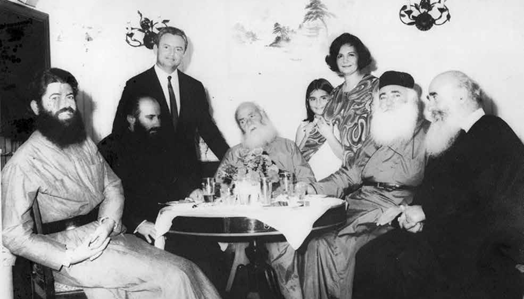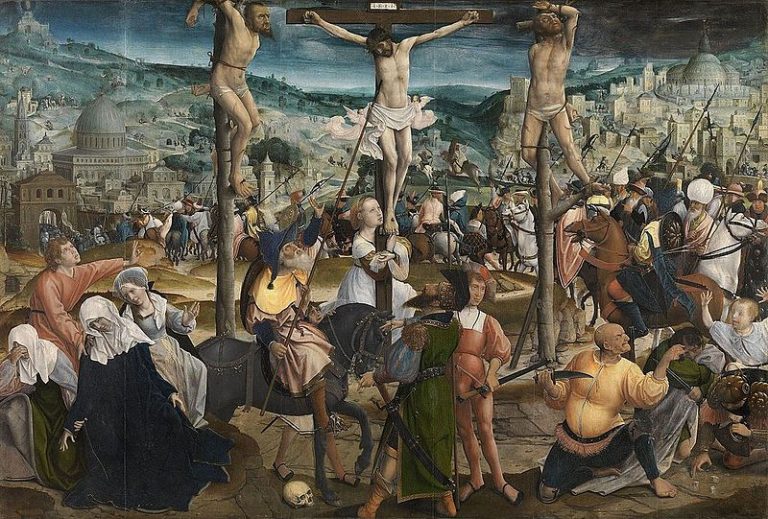St Jason the model of missionary work
Jason lived in Thessaloniki. He was indoctrinated and apprenticed under the Apostle to the Gentiles Paul. He is mentioned twice in the text of the New Testament. The first passage is found in the letter to the Romans, where Paul addresses greetings by stating: “Timothy my fellow worker, and Lucius and Jason and Sosipater, my kinsmen, embrace you” (Rom 16:21). Possibly the word “kinsmen” does not express consanguinity by blood – since we have no such evidence – but it probably means that they were his peers. Jason’s name is found a second time in Acts. There we read that he hosted Paul, who was undesirable to the Jews, and thus his life was in danger: “And when the Jews of the Jews of the agorae hired certain wicked men, who were threatening and harassing the city, and had taken charge of the house of Jason, they asked for them to be loved in the city; and when they had not found them, they asked for Jason and certain brethren to be loved in the city, crying out that they that have troubled the world shall not take them in and receive them, whom they shall receive unto Jason: and they do all things against the doctrines of Caesar, And when they heard these things, they troubled the mob and the captains, and took the right by the hand of Jason and the rest, and dismissed them.” (Acts 17:5-9). From the above account of the Evangelist Luke we discern two spiritual gifts that adorn the figure of Jason and are essential for the missionary man. One is hospitality, a trait of a broad-hearted man, a “kibbutz” Christian, a descendant and imitator even of that Abraham who claimed to host angels.
The man who has a heart like an open and welcoming embrace to other people, and his home is open and his goods available for the relief of others. “Houses of ᾿Jason” ought to become not only our homes, but also our hearts. When you host people who have made the ministry of the Gospel the purpose of their lives, it is like welcoming angels, since they too have the same task. But that is not enough. Our hearts – bypassing earthly preoccupations – must beat in the same way as the missionaries, to the rhythm of divine exhortation: “Make disciples…”. The second characteristic of St. Jason is valor, spiritual valor! A trait that prompts St. Chrysostom to exclaim: “Wonderful is the man who has put himself in danger and sent them away”. And elsewhere: “O of tyranny! From the houses of men, I have sent them out of doors.” Here is bravery and service in the work of spreading the Gospel: “Behold, how ably Jason sent forth Paul, so that his soul was sent forth for him”.
The one who loves God and, therefore, the one who keeps His commandments (“He who has kept my commandments and keeps them, he who loves me”), apart from his time, his youth or any other possession, can – if necessary – even sacrifice his own life.
Jason was then ordained by Paul as bishop of Tarsus. He then headed to Corfu with Saint Sosipater and they built a church in honour of the protomartyr Stephen. There, after the conclusion of each Divine Liturgy, they indoctrinated the unbelievers, resulting in the baptism of many. Their ministry shows that the building of churches and “the service after the Divine Liturgy”, that is, the catechetical service, are essential for the missionary work. Their struggle attracted the wrath of the unbelieving King Corcylinus, who imprisoned them. Any reasonable mind would imagine that in the prison and persecution that the Saints were subjected to, they would limit their missionary activity. But no! The exact opposite happened! For, just as God is everywhere, so the mission is carried out everywhere, even in prison, even in the hour of torture. The fruit of their confession of faith and of God’s grace, which accompanied them with various miraculous events, was that criminals such as Sartoninus, Faustian, Januarius, Marsalius, Euphrasius, Jacycholus, Mamminos, an Ethiopian, as well as the king’s daughter, Ceres, were led to martyrdom for Christ. At that time Corcylinus died and was succeeded by a king, an opponent – also – of the faith of Jesus and, consequently, of St. Jason. He commanded that Jason be put into a large barrel containing hot tar. So it was done, but Jason came out of it unharmed. The king, when he saw the miracle, repented and believed in the God of Jason. The man of God baptized him and gave him the name Sebastian. Thereafter, all the inhabitants of the island of Corfu followed the example of their ruler. Jason, in cooperation with the king, persecuted the Christians until his old age, when he fell asleep in the Lord. The memory of Saint Jason is commemorated on April 29.
Αmultimediaίcion
Sound d’.
Two of the Apostles of Christ, Jason the Intoxicant, Sosipater the Closer, with one accord have honoured, for they have shown the word of grace, and have lived in Corcyra in the light of piety, preaching to the Lord for the sake of our souls.




